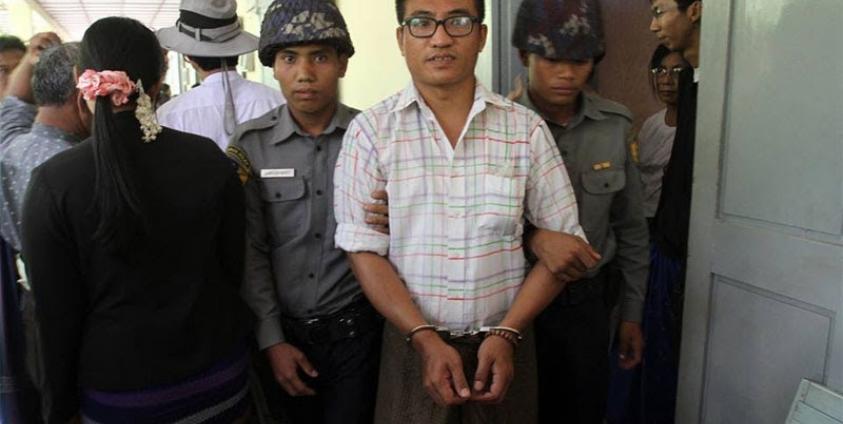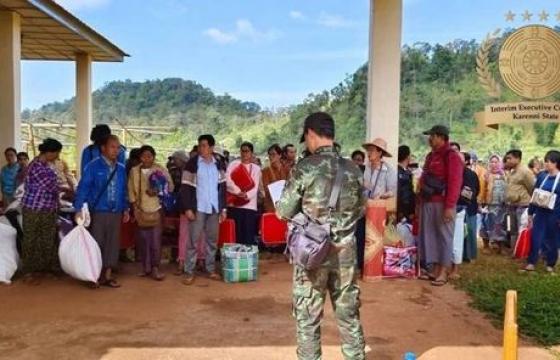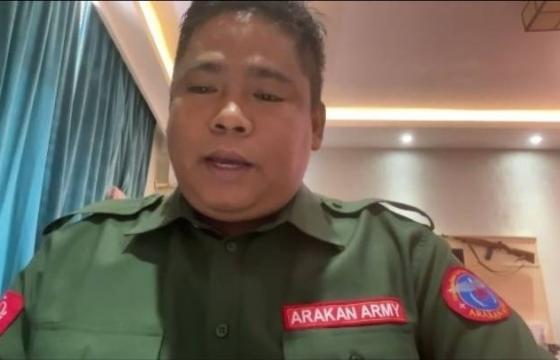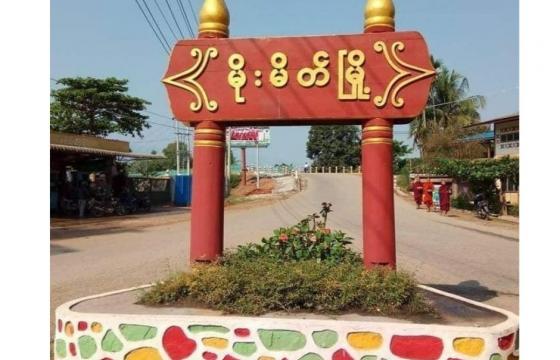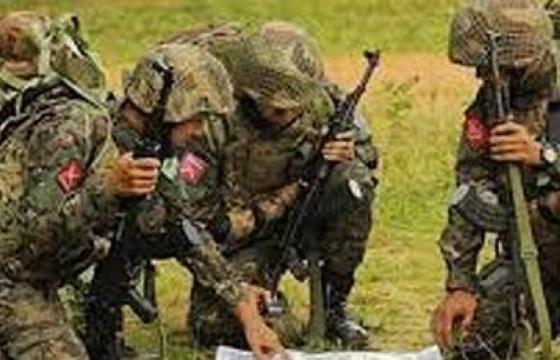Myanmar authorities should dismiss politically motivated immigration charges against a prominent former activist monk and release him from detention, Human Rights Watch said in a statement yesterday, 25 April.
U Gambira, also known by his lay name Nyi Nyi Lwin, faces up to five years in prison if convicted by a court in Mandalay for allegedly leaving Myanmar illegally in October 2013.
U Gambira came to the world’s notice as a leader of the Buddhist monk-led popular protests in 2007 against the military junta. He was defrocked after his arrest that year and was imprisoned until freed in a general amnesty in 2012. The authorities arrested him in Mandalay in January under section 13(a) of the Myanmar Immigration (Emergency Provisions) Act of 1947, which concerns illegal entry by foreigners. The court has repeatedly denied him bail despite acknowledging his mental disability connected to his previous five-year incarceration.
“Burmese authorities should drop this trumped-up case against U Gambira, who is being targeted for his prominent role in opposing military dictatorship,” said Phil Robertson, deputy Asia director at Human Rights Watch. “U Gambira suffered terribly under the military junta and he should not have to suffer further by spending even one more day in prison.”
The Universal Declaration of Human Rights, which is broadly recognized as reflecting customary international law, states in article 13 that, “Everyone has the right to leave any country, including his own, and to return to his country.”
The September 2007 protests involved thousands of monks, nuns, and their lay supporters calling for the then military junta, the State and Peace Development Council (SPDC), to pursue economic and social reforms. After weeks of peaceful street assemblies, the authorities attacked protesters and arrested hundreds of monks and their supporters. A Human Rights Watch investigation found that army and police units killed at least 21 people in the crackdown; the United Nations later documented 31 deaths. The government has never adequately investigated the violence and no government officials or security forces personnel were ever punished for those abuses.
Following his arrest in November 2007, U Gambira was held in several prisons and subjected to physical and psychological torture, including regular beatings. He was released in a general amnesty in 2012, but did not rejoin the Buddhist monkhood. Over the past two years, he has been seeking psycosocial therapy in Thailand for mental trauma that he suffered during his time in prison.
“U Gambira’s case reeks of the ugly political prosecutions of discarded military juntas,” Robertson said. “The new government should be finding ways to assist former political prisoners, not jailing them for dubious charges.”

